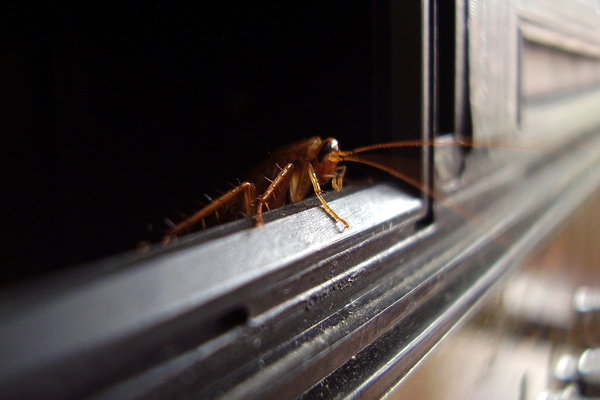Did you know cockroaches can aggravate asthma? We'll tell you how.
 Photo by: Shuttershock
Photo by: Shuttershock
Did you know cockroaches can aggravate asthma? Here’s how.
Unless you’re an entomologist, it’s likely that you’re not fond of cockroaches. Most people would agree with you on this point. Cockroaches aren’t very easy on the eyes, and they’re associated with many negative things such as rotting food, unsanitary conditions and even disease.
What many people don’t realize about cockroaches, however, is that these insects can aggravate asthma and cause allergic reactions. That’s right. You now have one more reason to dislike the cockroach.
Let’s take a look at how cockroaches can affect asthma or cause breathing problems, so that you fully understand what’s going on in your home and with your health.
THE BASICS OF ASTHMA
The Centers for Disease Control and Prevention (CDC) defines asthma as a disease that affects the lungs and causes repeated episodes of wheezing, breathlessness, chest tightness and coughing at night or in the early morning. In 2020, the CDC reported that 5.8 percent of children and 8.4 percent of adults in the United States suffer from the condition.
Asthma is controlled using medications that help reduce inflammation in the airways. Many people also rely on inhalers to provide relief when they experience a sudden flare-up, also known as an asthma attack. Another way people with asthma control their condition is by working with their doctors to recognize and avoid the factors and environments that cause their asthma attacks.
The factors and environments that set off an asthma flare-up are known as “triggers.” These triggers vary depending on each person and range from exercise, pet dander, dust mites, smoke, pollen, mold and — you guessed it — cockroaches. But how exactly do cockroaches trigger an asthmatic flare-up?
HOW COCKROACHES TRIGGER ASTHMA FLARE-UPS
Cockroaches don’t just crawl around your home to gross you out. While they’re creeping through the house, they eat, breed, molt and defecate. Naturally, they’re leaving lots of things behind as they go. It might be a bit of exoskeleton here, a little saliva there or some droppings everywhere.
What many people don’t realize is that they’re allergic to the excretions the cockroaches are leaving. People who don’t have asthma may simply experience allergy symptoms like stuffy noses, sinus infections, coughing or wheezing. People with asthma, however, may start to see an increase in the number of flare-ups they experience. And that’s not a good thing.
PREVENTING A COCKROACH-INDUCED ASTHMA ATTACK
To fend off asthma flare-ups that may be brought on by cockroaches, you have to go the root of the problem and get rid of the cockroaches themselves. It makes sense, right? There are a few ways to do this:
- Eliminate the roaches’ food and water sources. This means cleaning up crumbs after meals and wiping sinks down after doing the dishes. If you see roaches in your bathroom, you may want to wipe down the shower wall and tub after bathing and invest in toothbrush covers. (Because no one wants a cockroach crawling on his or her toothbrush.)
- Do some hard-core cleaning. Vacuum the areas that cockroaches like — think bathrooms and kitchens — every few days to remove allergens and possible food sources. Make sure your vacuum uses a HEPA (high-efficiency particulate air) filter.
- Call in the cavalry. If you have allergies, you shouldn’t wait to get help from a professional pest control service. Be certain to let your pest control technician know about your allergies so that he or she will know how to create a customized treatment plan for you.
Do you have friends or loved ones who suffer from asthma? Share this article with them so that they’re aware of how cockroaches in their homes could be affecting their health.
Sources:
Asthma Partner
Everyday Health
Center for Disease Control


